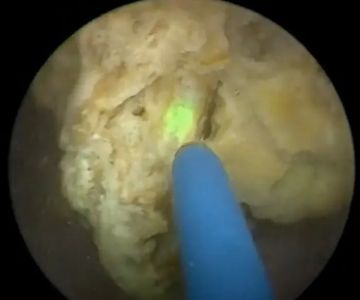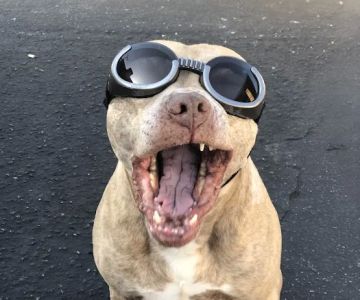How to Stop Your Dog from Eating Poop: Solutions for Pet Owners
- Why Do Dogs Eat Poop?
- Health Risks of Dog Eating Poop
- Effective Solutions to Stop Your Dog from Eating Poop
- Training Your Dog to Avoid Eating Poop
- Real-Life Stories from Dog Owners
1. Why Do Dogs Eat Poop?
Coprophagia, the act of eating poop, is a common and natural behavior in dogs, but it can be distressing for pet owners. There are several reasons why a dog may engage in this behavior:

VCA Arboretum View Animal Hospital, 2551 Warrenville Rd, Downers Grove, IL 60515, USA
See Details1.1. Nutritional Deficiencies
One of the most common reasons dogs eat poop is due to a lack of essential nutrients in their diet. Dogs may instinctively eat feces to obtain missing nutrients like protein, vitamins, or minerals. If your dog is eating poop, it could be a sign that their diet isn’t balanced or complete.

1225 Warren Ave, Downers Grove, IL 60515, USA
See Details1.2. Instinctual Behavior
For some dogs, eating poop is simply an instinctual behavior. In the wild, dogs and their ancestors may have eaten feces to clean up their living space or avoid predators by masking their scent. This behavior can carry over into domestic dogs, particularly when they are stressed or anxious.
1.3. Boredom or Anxiety
Dogs may also resort to eating poop when they are bored or anxious. This behavior can develop as a coping mechanism when dogs are left alone for long periods or lack sufficient mental stimulation and exercise.
2. Health Risks of Dog Eating Poop
While coprophagia is common, it can pose serious health risks to your dog. Here are some of the potential dangers:
2.1. Parasites and Infections
Eating feces can expose dogs to harmful parasites and bacteria, such as roundworms, hookworms, and giardia. These parasites can lead to gastrointestinal issues, dehydration, and other serious health problems. If your dog frequently eats poop, it’s important to ensure they are regularly dewormed and receive routine veterinary checkups.
2.2. Nutritional Imbalance
Dogs that eat poop may also suffer from nutritional imbalances. While they may be attempting to consume missing nutrients, eating feces is not a healthy way to meet their dietary needs. This can lead to digestive issues, malnutrition, and a compromised immune system.
2.3. Transmission of Diseases
Feces from other animals can carry diseases that can be transmitted to dogs through coprophagia. These diseases include parvovirus, salmonella, and E. coli, which can be dangerous not only for your dog but also for humans in the household. It’s important to discourage this behavior to avoid health complications.
3. Effective Solutions to Stop Your Dog from Eating Poop
While it may be a frustrating issue, there are several strategies you can use to stop your dog from eating poop:
3.1. Improve Their Diet
One of the first steps in preventing coprophagia is ensuring that your dog’s diet is nutritionally balanced. Talk to your veterinarian about your dog’s food and whether it meets their specific dietary needs. High-quality, well-balanced food can help eliminate deficiencies that may be driving this behavior.
3.2. Clean Up Immediately
The best way to stop your dog from eating poop is to prevent access to it. Clean up after your dog as soon as possible, especially when you’re outside. This can help prevent them from eating their own feces or the feces of other animals.
3.3. Provide Mental and Physical Stimulation
Boredom and anxiety are often at the root of poop-eating behavior. Make sure your dog gets plenty of exercise, playtime, and mental stimulation to reduce stress and anxiety. Interactive toys, regular walks, and engaging games can help keep your dog mentally and physically satisfied.
4. Training Your Dog to Avoid Eating Poop
Training your dog to avoid eating poop is possible with patience and consistency. Here are some training tips to help curb this behavior:
4.1. Use Positive Reinforcement
Reward your dog with treats and praise when they avoid poop or stop trying to eat it. Positive reinforcement can encourage good behavior and help them associate ignoring feces with rewards.
4.2. Teach “Leave It” Command
Training your dog to respond to the “leave it” command is a great way to prevent them from eating something they shouldn’t. Start with a treat or toy and practice the command, gradually increasing the level of distraction (such as poop). Consistent practice will help your dog learn to avoid feces in all situations.
4.3. Use Deterrents
Some pet owners find that using taste deterrents, like certain sprays, can make feces unappealing to their dog. You can ask your vet for recommendations on safe products to use as a deterrent.
5. Real-Life Stories from Dog Owners
Many pet owners have successfully dealt with their dog’s poop-eating habit. Here are a few success stories:
5.1. Jane’s Success with Training
Jane, a dog owner from California, shared how she successfully stopped her Labrador from eating poop by improving his diet and using positive reinforcement training. By switching to a higher-quality dog food and rewarding him for ignoring feces during walks, her dog eventually stopped the behavior completely.
5.2. Tom’s Experience with Deterrents
Tom, from New York, used a taste deterrent spray recommended by his vet. He said that after a few applications, his dog lost interest in eating poop. Tom also made sure to clean up after his dog immediately and provided more outdoor exercise, which helped reduce the behavior.









